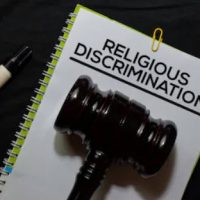Religious Accommodations in the Workplace: An Overview of Employee Rights

Title VII of the Civil Rights Act of 1964 prohibits employers from discriminating against employees and job applicants on the basis of religion or their lack of religion. Beyond merely avoiding overt acts of disparate treatment, covered employers also have a duty to provide reasonable religious accommodations to employees. Many workers in Florida have questions about their ability to obtain an accommodation. In this article, you will find an overview of your right to a religious accommodation in the workplace.
What is a Religious Accommodation?
As explained by the Equal Employment Opportunity Commission (EEOC), a religious accommodation is an adjustment or modification to the general work environment or employer policies that allows an employee fair access to job opportunities without the need to breach their sincerely held beliefs. In practice, religious accommodations can come in a wide range of different forms. Some of the most common examples include:
- Offering a more flexible schedule;
- Relaxation of the workplace dress code or grooming policy;
- Reassignment of an employee to different tasks; and
- Allowing leave for certain dates of religious significance.
To be effective, a religious accommodation should be focused on the individual needs of an employee. It should modify the workplace environment or policies in a manner that provides fair and equal opportunities.
Title VII of the Civil Rights Act: What is Covered Under Religious Protections?
Under Title VII, the term ‘religion’ is defined in a relatively broad manner. To start, it includes all of the world’s major organized religious, such as Christianity, Islam, Judaism, and Buddhism. Additionally, it also includes smaller and new practices. Still, there are limits to the beliefs and practices that are protected under the law. The EEOC has consistently assessed that social, political, and personal preferences are not covered by religious discrimination protections.
Employers Must Make a Good Faith Effort to Accommodate Religious Practices & Beliefs
Florida employers covered by the Title VII of the Civil Rights Act have a responsibility to make a good faith effort to accommodate the sincerely held religious beliefs of an applicant or employee. Similar to a reasonable accommodation for a disability, no specific religious accommodation is guaranteed. Instead, employers are required to engage in a good faith, interactive bargaining process to find a solution that works.
A business or organization is not required to offer a religious accommodation if that accommodation would pose an undue hardship. What constitutes an ‘undue hardship’ on an employer depends on many factors, including the size and resources of the company. Indeed, in its guidance to employers, the EEOC emphasizes that case-by-case determinations are appropriate when religious accommodations are requested.
Get Help From an Employment Law Attorney in Florida
Religious discrimination claims are complex. Employers have a responsibility to make a good faith effort to accommodate the sincerely held religious beliefs of job applicants and employees. If you have any questions or concerns about your right to a religious accommodation in the workplace, an experienced Florida employment discrimination lawyer can help.

